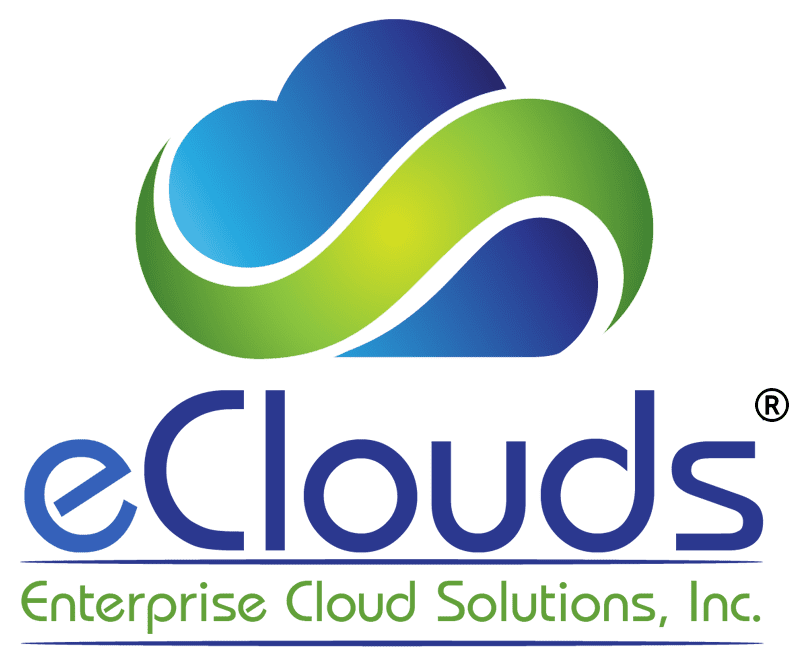A Complete Guide to Understanding Salesforce Sales Cloud
- What is Salesforce Sales Cloud?
- Who Uses Salesforce Sales Cloud?
- What Are The Benefits of Salesforce Sales Cloud?
- What Are The Different Features in Salesforce Sales Cloud?
- What's New with Sales Cloud?
- What's the Difference Between Sales Cloud and other Sales Software Tools?
- How Long Does It Take To Implement Salesforce Sales Cloud?
- How eClouds.co can help?
What is Salesforce Sales Cloud?
Who Uses Salesforce Sales Cloud?

What Are The Benefits of Salesforce Sales Cloud?
Helps you close more deals
With Salesforce Sales Cloud, you can track your leads at every stage of the sales funnel, from prospecting through closing deals. This lets you know your top performers and what they're doing that's working so well for them—so you can replicate it in other areas of your business.
Provides visibility into your pipeline
With Salesforce, you'll never miss an opportunity again because you'll be able to see exactly where each deal stands at any given time—and what needs to happen next for it to move forward through the pipeline.
Converts leads into opportunities faster
With Salesforce Sales Cloud, you can collect information about leads as soon as they reach out to you, so there's no need for manual entry or other time-consuming processes. This makes it easier than ever to convert leads into opportunities—which means more sales!
Bring together disparate data sources into one place
This way, you can see everything related to a sale in one place. You can also use the platform's built-in tools to streamline processes and automate workflows so that they're easier for your staff to manage.
What Are The Different Features in Salesforce Sales Cloud?
Contact Management
Salesforce Sales Cloud helps you manage your contacts and interactions with customers. From a single interface, Salesforce gives you access to critical data about your contacts and their interactions with your organization. You can use the social data of your customers for a deeper understanding of their behavior toward any product or service.
In addition, Salesforce enables collaboration in your organization by enabling you to share insights and important documents with coworkers so that you can create a knowledge-sharing workplace. Furthermore, you can track the progress of deals by accessing all contact data.
Lead Management
Salesforce helps you track the right information about your CRM leads. With Salesforce, you can see and access the most up-to-date contact information while understanding best practices and relevant documents using the sales path.
Mobility
When you're away from your office, you might need to access your salesforce account without your laptop. The salesforce mobile app allows you to do this, take conference calls, take meeting notes and collaborate with your team via instant messaging. With the app's file-sharing capability, you'll be able to work more flexibly from anywhere.
Reports and Dashboards
Salesforce dashboard components give you a visual representation of your business's performance in the market. Reports created from those dashboard components give you easy access to key data insights, which help you make better decisions. It provides real-time statistics of your company's information in very little time. It is very simple to create reports and dashboards in Salesforce. You can build the dashboard by simply dragging and dropping icons into the Salesforce CRM.
Artificial Intelligence Integration
Artificial Intelligence Integration, also known as Einstein Analytics, is a cloud-based analytic tool that allows Salesforce users to understand, aggregate, and visualize data coming from different locations. With embedded dashboards, Salesforce Einstein Analytics also connects users to the Salesforce Service Cloud.
What's New with Sales Cloud?
Sales Cloud Unlimited

Salesforce announced Sales Cloud Unlimited, a unified platform for sales teams to streamline their workflow and drive revenue from day one. The company also announced three new tools that make it easier for sales teams to speed up workflow and turn their sales reps into trusted advisors.
Sales Cloud Unlimited helps you make smarter sales. It's an all-in-one platform for sales where Einstein and automation come standard, enabling every rep to be more efficient. Enhanced coaching and strategic collaboration across teams for top clients. Manage patient communications and build trusted relationships across communication channels. Transform your revenue model to offer subscriptions for products, parts, and maintenance. Get visibility into business trends and make informed inventory decisions based on purchase patterns and insights.
Accelerate HLS

Salesforce recently launched the HLS Solutions Portal, which includes solutions, components, and automation accelerators to speed up customer time to value. Solutions are a set of components, automation assets, data models, and more that can be used to solve a specific user journey. Components are sets of Lightning Experience and Lightning App Builder components used to extend the functionality of Experience Builder and Lightning App Builder pages. These components include documentation and source code available on GitHub.
Automation components (e.g., Flow, Omniscripts, and Flexcards) to increase productivity, reduce redundant work and manual data errors, and improve customer satisfaction. Automation components include documentation and source code available from GitHub.
What's the Difference Between Sales Cloud and other Sales Software Tools?
|
Criteria |
Salesforce |
Oracle |
Microsoft Dynamic |
HubSpot |
|
Cost |
starts at $25/monthly/annually |
starts at $65/monthly/annually |
starts at $65/monthly/annually |
Free |
|
Implementation |
4 |
5 |
3 |
4 |
|
Integration |
4 |
5 |
3 |
2 |
|
Ease of Use |
5 |
4 |
3 |
5 |
|
Customization |
5 |
4 |
3 |
3 |
|
Features and Ad Ons |
5 |
3 |
3 |
2 |
|
Customer Support |
5 |
5 |
5 |
2 |
|
4.67 |
4.33 |
3.33 |
3.00 |
How Long Does It Take To Implement Salesforce Sales Cloud?
How eClouds.co can help?

Citation/References:
Salesforce Implementation: What you need to know. Retrieved from Company (20 January 2022). https://ecloudstrans.wpenginepowered.com/salesforce-implementation/
Industry transformation at the speed of innovation. Retrieved from Salesforce (n.d). https://www.salesforce.com/solutions/industries/
Learn more about Accelerate HLS and how to get started. Retrieved from Accelerate HLS (n.d). https://www.acceleratehls.com/acceleratehls/s/getting-started
26 Sales Statistics That Prove Selling Is Changing. Retrieved from Salesforce (25 January 2019). https://www.salesforce.com/blog/15-sales-statistics/
What to expect from the Salesforce Sales Cloud platform. Retrieved from TechTarget (n.d). https://www.techtarget.com/searchcustomerexperience/feature/What-to-expect-from-the-Salesforce-Sales-Cloud-platform
Salesforce vs. Oracle CRM Software. Retrieved from IT Business Edge (08 April 2019). https://www.itbusinessedge.com/applications/salesforce-vs-oracle/
Breakdown of Salesforce CRM customers worldwide in 2022, by selected country. Retrieved from Statista (15 August 2022). https://www.statista.com/statistics/1251119/salesforce-crm-customers-by-country/
Popular Post

A Complete Guide to Understanding Salesforce Sales Cloud

5 Things You Should Consider in Choosing Your Salesforce Implementation Partner

11 Key Benefits of CPQ Every Business Needs to Know

10 Most Common CRM Implementation Challenges that You Must Be Aware Of






